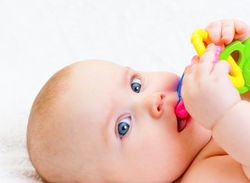 |  |
|---|---|
 |  |
 |  |
 |  |
 |
Newborns to 12 year olds
Servicing the northern suburbs of Melbourne
Welcoming children with NDIS funding
Call 0401713827 now to book an appointment!

Cerebral Palsy/ Spina Bifida
Children with neurological conditions such as Cerebral Palsy or Spina Bifida, have difficulties performing smooth co-ordinated movement in the affected parts of their body. This effects a child's ability to use their body in an efficient way to move, explore and play.
Physiotherapists help to strengthen and retrain functional movement patterns to achieve functional goals.

Syndromes/ Chromosomal Abnormalities
There are many rare syndromes caused by a disruption to normal genetic material. Some children diagnosed with a syndrome have difficulties with their movement skills and/or other areas of their development such as communication, play skills, cognition and fine motor skills. Some have very flexible joints and low muscle tone. Physiotherapy can help strengthen the legs, arms and core muscles, as well as assist the progression of gross motor skills, which enhance the ability of your child to move, explore and therefore learn in their environment.

Gross motor delays or difficulties
Some children are a little slower to develop their big movement skills.
Babies may be slow to learn to roll, sit, crawl or walk. Toddlers or older children may have difficulty running, jumping, hopping, or riding a trike/bike. Kids may also have difficulties with balance or co-ordination.
Physiotherapy can provide exercises to enhance these gross motor skills as well as investigate if there may be an underlying cause for these difficulties.

Plagiocephaly/ Torticollis
Some babies develop flat spots on the soft bones of their skull. This may occur in conjunction with a limitation in turning or tilting their neck to one side.
Physiotherapists can teach positioning, stretching, carrying and play techniques to improve neck movements and promote the skull to grow symmetrically.


